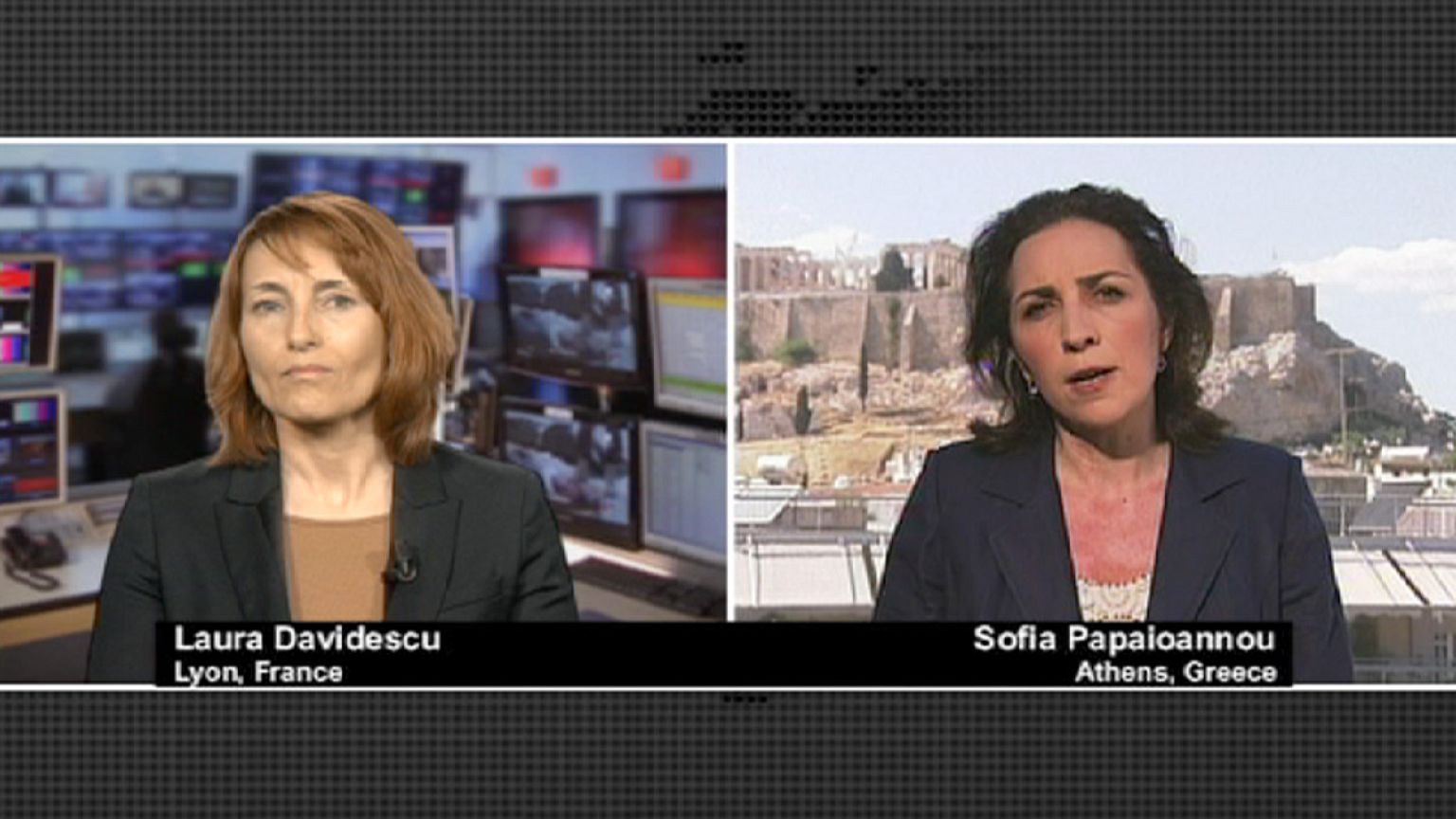Greece has a new election scheduled for 17 June, since none of the parties emerged from the May 6 elections strong enough to form a government or were able to form a coalition.
The national treasury is almost dry, lenders are reluctant to inject new liquidity, and European partners have stopped denying they are concerned about a Greek exit from the euro currency.
Greeks are said to have withdrawn at least 700 million euros ($890 million) from banks on Monday alone. Several banking sources said Tuesday was similar.
Nearly a third of bank deposits were taken out in the first three months of this year.
The Greek Central Bank said that since the beginning of 2010, 72 billion euros of savings deposits have been taken out of Greek banks.
Experts say this is not only people moving their money somewhere else. They say a lot of Greeks are also eating into their capital, spending it on daily survival.
After four years of recession, 1.1 million Greeks are out of work – more than 21 percent of them.
The head of the European Central Bank has expressed a “strong preference” that Greece stay in the euro.
The head of the European Commission has said that the ultimate resolve to do that must come
from Greece itself.
GDP has contracted by 20 percent since 2008.
The EU/IMF assistance programme imposed steep wage and pension cuts, and Athens has seen around a third of businesses in the capital close.
Store owner George Vergetzis said: “I have been on this street for 43 years, and business always did very well. Now things are very bad. Many of my colleagues are shutting up shop.”
Greek consumers have lost purchasing power as prices have risen by roughly 10 percent since 2010.
That was as private sector pay drew back by more than 20 percent.
One of the measures demanded by the EU-IMF-ECB troika was suppression of collective wage bargaining through a measure passed by parliament in February.
Euronews spoke to Sofia Papaioannou, a respected Greek journalist and broadcaster, in Athens, about the current uncertainty.
Laura Davidescu, euronews: “We see the Greek banks bleeding. Is panic gaining momentum?”
Sofia Papaioannou: “The thing is that the situation now is very chaotic and very unpredictable. We really don’t know what’s going to happen, because according to the recent polls, all the recent polls suggest that even with new elections, there is not going to be a majority party.
“I think Greece will face a serious dilemma of having a political breakdown or really forcing the [political] powers to have a much-needed coalition.
euronews: “Now on one hand, the Greeks have said a clear ‘no’ to the parties that support the bailout deal. On the other hand, opinion polls show 80 percent of the Greeks are in favour of staying in the euro. Can you help us understand this big contradiction? What do Greeks really want?”
Sofia Papaioannou: “I think the Greeks really want to stay in the eurozone and stay in the euro. But they do understand that this has a very high cost and a lot of people are not willing to pay that cost.
“They are exhausted, we come from two years of severe austerity. We know that in mid-June, the time when the new elections are scheduled, we’re going to have new austerity measures, even more severe.
“So now Greeks face a very serious dilemma: whether to stick with this bailout programme and obey the austerity plans, because otherwise we fear that we’re going to exit the euro, or really forget everything about the euro and just be more opportunistic and see whether we can have a cancellation of the austerity measures and stay with the euro at the same time.
“I think what it shows here is, again, Greece and Greeks don’t really understand what’s happening, they don’t trust the European Union, that they know what’s going on in Greece, and at the same time, they don’t trust the politicians, that they are saying exactly what’s the situation.
euronews: Now you are speaking about a complete lack of trust, Greeks don’t seem to trust anybody anymore. But look at Alexis Tsipras, the leader of the Syriza Radical Left and the real victor of the elections. He has promised to put an end to what he called a “barbarian” deal. What’s his plan for getting Greece out of the mess?”
Sofia Papaioannou: “Well, it’s not clear what exactly he favours. At one point, there are some people of this leftist block that say ‘we want a complete annulment of the bailout programme’. Others say ‘we don’t want to annul it but we want to cancel some of the austerity measures’. It’s not clear exactly what they want to succeed.
“Polls suggest that now Syriza will be the first party again, but without a majority. So, Syriza cannot handle, I think, at this point, this power that they have in their hands.”
euronews: “Do you think your country has gone, in a way, beyond a point of no return, with the last elections?”
Sofia Papaioannou: “Well I think that there is a high percentage of the population that have gone to a point of no return and I mean that the extreme austerity measures have forced people to this point.
“There are some people who believe that in the first elections we showed what we don’t want, and in the next election people will be more wise to vote for the things that they really want, or they will be more scared of what’s next.
“Because we do understand, people here in Greece do understand the risk of this leftist talk, and they do understand that Europe also is very angry with how Greeks are handling the situation. And I do hope that there is a kind of political stability in Greece very, very soon.”















